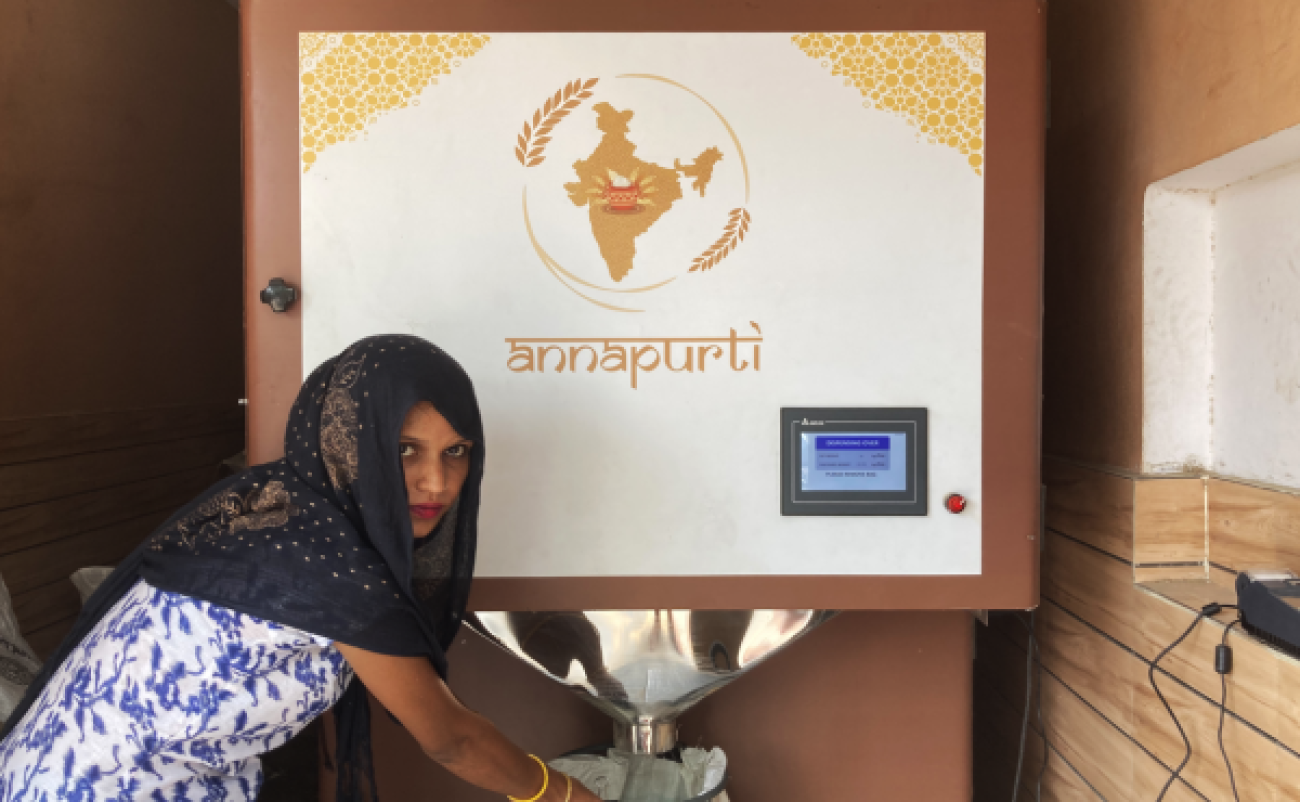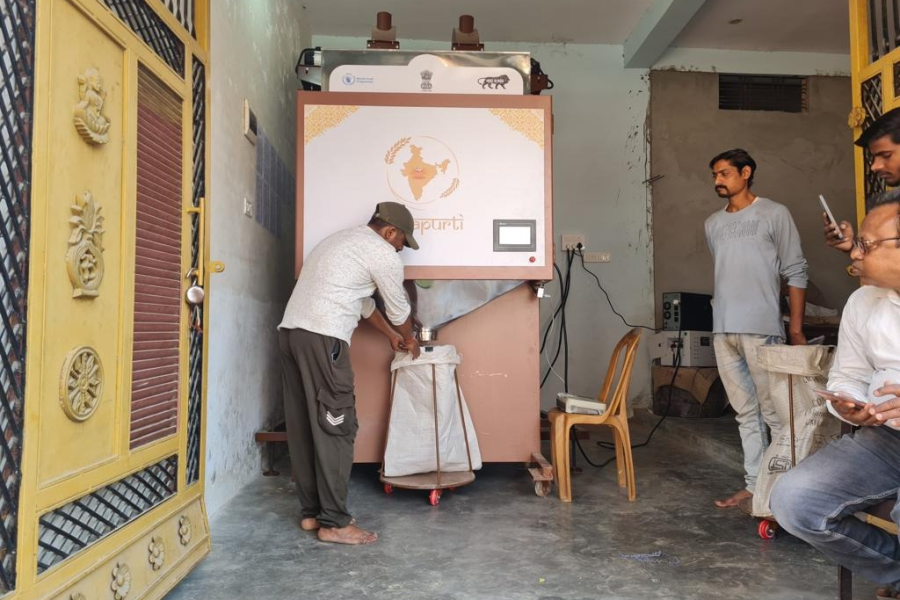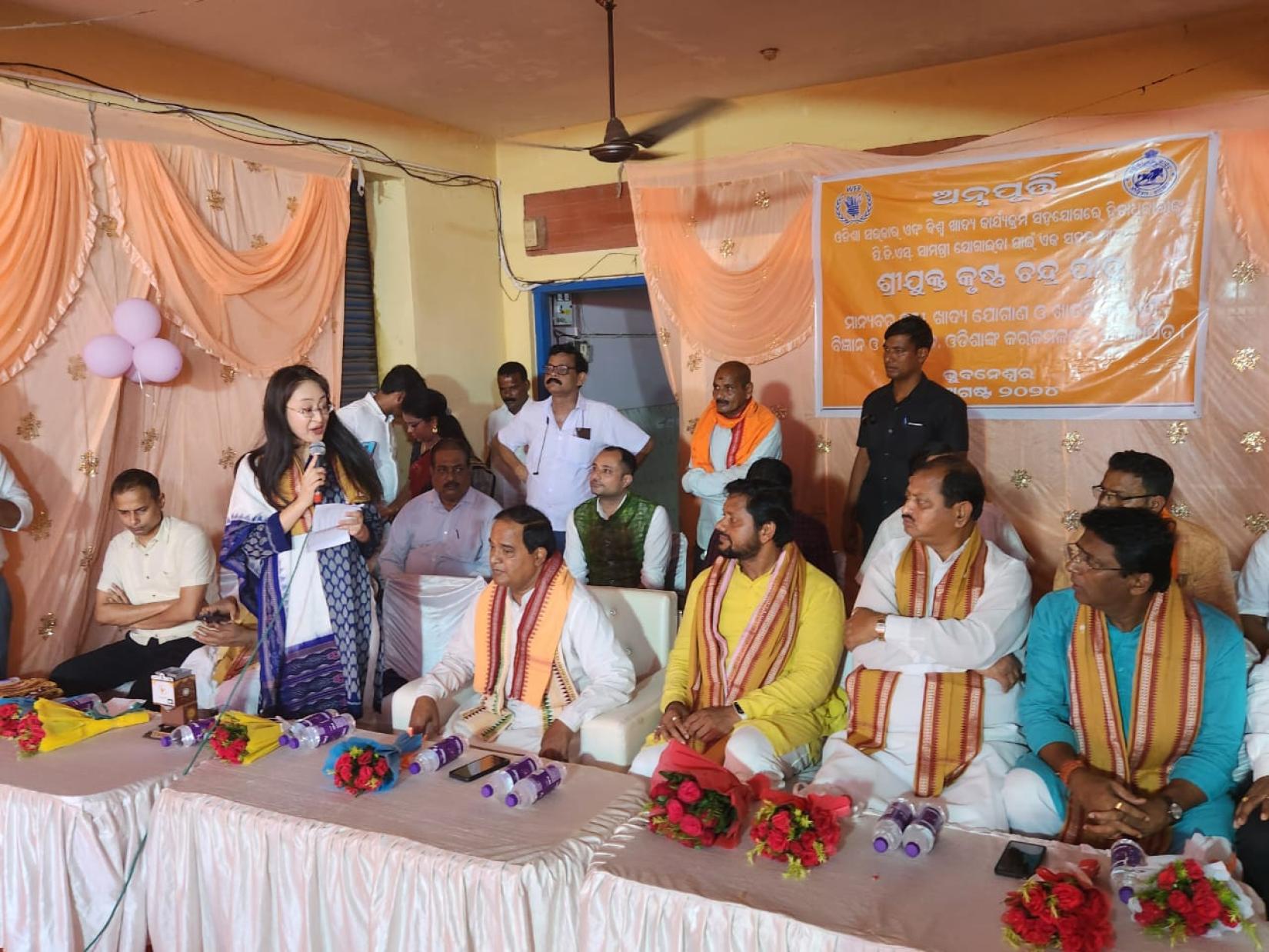India's first 24/7 'Grain ATM’ starts dispensing in Odisha

15 August 2024
The United Nations World Food Programme (WFP) and the Odisha Government have launched India’s first around-the-clock grain dispensing machine, or 'Grain ATM,' in the state capital Bhubaneshwar.
With this machine, also known as Annapurti (Hindi for “fulfiller of food”), Odisha becomes the first state to provide access to public distribution system beneficiaries 24 hours a day.
The machine was inaugurated by Krushna Chandra Patra, Minister of Food Supplies, Consumer Welfare, Science and Technology of the Odisha Government, and Nozomi Hashimoto, Deputy Country Director for WFP in India, at a launch event on 9 August.

“This is a significant initiative in partnership with the United Nations World Food Programme to achieve nutritional security in the state, which is focused on food security. The ATMs will be set up across the state to provide food grains to beneficiaries with 24/7 access under the National Food Security Act,” the minister said.
The Annapurti provides universal access: anyone with a public distribution system ration card valid in India, regardless of their state or union territory, can access their entitlement. It can dispense up to 50 kilograms of grain in five minutes, reducing waiting time by 70 per cent. Once biometric authentication is completed, it provides consistent access to the full ration. The modular design allows easy assembly based on available space. Annapurti is energy-efficient and can be connected to solar panels for automatic refilling.
“Odisha presents a success story with global relevance. We are humbled to see the Annapurti, a made-in-India globally awarded solution operational in many states, evolving to add more functionalities and features based on a year-long pilot and testing,” said Ms. Hashimoto.
The technology behind the Annapurti, developed by WFP India, is a significant step towards improving food security and ensuring people receive full rations efficiently and accurately.
India operates one of the world’s largest food-based safety nets, under which subsidized grains are provided to roughly 813 million people every month through a network of over 500,000 last-mile outlets called Fair Price Shops (FPS).

Under the current set-up, FPS operators manually weigh and distribute grain. However, this process is not without problems. It requires recipients to queue for hours, there is a high possibility of spillage and waste, and it can lead to people not receiving their share of food assistance.
Watch here







